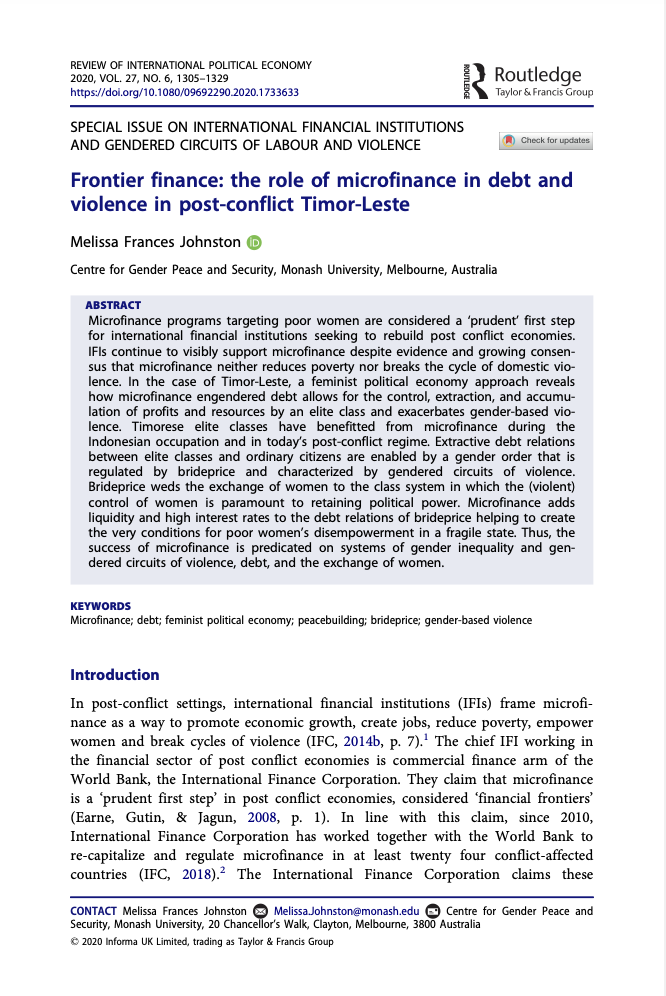Resource information
Microfinance programs targeting poor women are considered a ‘prudent’ first step for international financial institutions seeking to rebuild post conflict economies. IFIs continue to visibly support microfinance despite evidence and growing consensus that microfinance neither reduces poverty nor breaks the cycle of domestic violence. In the case of Timor-Leste, a feminist political economy approach reveals how microfinance engendered debt allows for the control, extraction, and accumulation of profits and resources by an elite class and exacerbates gender-based violence. Timorese elite classes have benefitted from microfinance during the Indonesian occupation and in today’s post-conflict regime. Extractive debt relations between elite classes and ordinary citizens are enabled by a gender order that is regulated by brideprice and characterized by gendered circuits of violence. Brideprice weds the exchange of women to the class system in which the (violent) control of women is paramount to retaining political power. Microfinance adds liquidity and high interest rates to the debt relations of brideprice helping to create the very conditions for poor women’s disempowerment in a fragile state. Thus, the success of microfinance is predicated on systems of gender inequality and gendered circuits of violence, debt, and the exchange of women.

